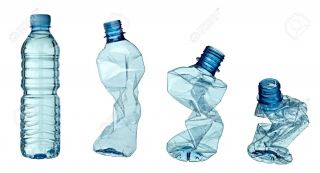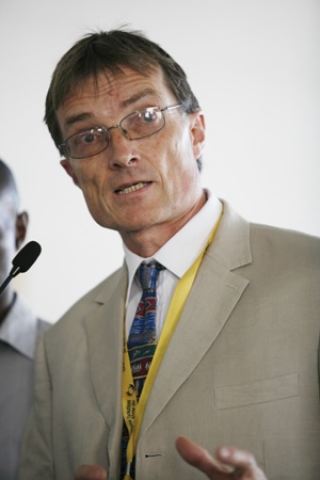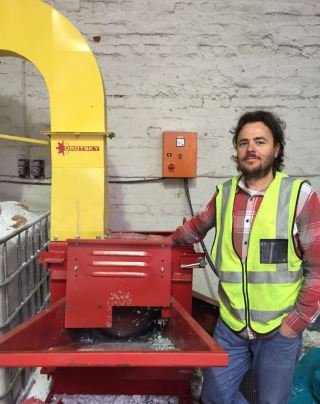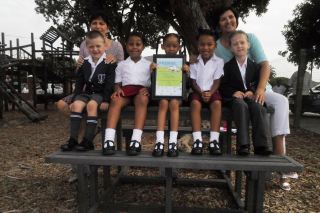Billions of bottles recycled in South Africa
Over 2 billion PET plastic bottles were recycled in South Africa last year. Plastic bottle recycled tonnage in SA has grown by over 800% since 2005.
PETCO* has announced their 2016 recycling figures. These indicate that the annual PET recycling rate has grown from 52% of post-consumer bottle PET in 2015, to 55% in 2016, exceeding their expected target.
PETCO recycled an additional 22% of post-consumer bottles in comparison to the previous year, with the total PET market growing by 14.8% to 241 269 tonnes.
PETCO CEO, Cheri Scholtz, commented, “PETCO is delighted with the latest figures. Through the remarkable network of people, companies and organisations we work with, 2 billion PET bottles were collected for recycling across South Africa during the course of 2016, creating some 62 000 income opportunities for small and micro-collectors, and changing their lives and those of their families in immeasurable ways.” The voluntary recycling fee paid annually by PETCO members on every tonne of raw material purchased has enabled the payment of a total of R1.9 billion by our contracted recyclers to collectors for baled bottles since the inception of PETCO in 2004, ensuring the collection of PET bottles for recycling is sustained, and resulting in almost 800 000 tonnes of carbon and over 3 million m3 of landfill space saved to date.
Casper Durandt, Chairman of PETCO and Senior Technical Operations Manager Coca-Cola Southern and East Africa, also commented “While this is an extremely proud accomplishment for PETCO, we could not have achieved this without the dedicated partners we work with that have made extraordinary contributions to the recycling of post-consumer PET in South Africa, thereby enabling PETCO to expand our collection network, build relationships with recyclers, seek new opportunities to develop and support entrepreneurs, and ultimately grow our recycling tonnages.”
Adds Chandru Wadhwani, Joint Managing Director of Extrupet (Pty) Ltd. and PETCO board member, “PETCO’s achievement of collecting 90 749 tonnes in 2016 was beyond remarkable. For those of us who have long memories in this industry, it in extraordinary to have crossed the 90 000 tonne mark so early on in PETCO’s young evolution. One further needs to consider what was the “lay of the land” at the beginning of 2016, when there were only hurdles and obstacles which had many of us believing that the collection figure for the year would have gone backwards from the previous year. This is ultimately an achievement built on teamwork, coordinated at its finest through the exemplary efforts of PETCO. Credit to all the members for their continued support. They set the perfect example of what “extended producer responsibility” entails and their continuous drive to grow their achievements have become the benchmark for many other organisations in SA, as well as internationally”.
South Africa’s 55% recycling rate compares well with international PET recycling rates. The US rate of post-consumer PET recycling hovers around the 30% mark while European average rates are around 59%.
*the organization responsible for fulfilling the South African PET plastic industry’s role of Extended Producer Responsibility.
Sava Confirms Exciting Speakers For Vinyls Sa 2017 Conference
The Southern African Vinyls Association (SAVA) is proud to announce that it has confirmed three of the world’s leading experts on PVC as speakers ahead of its Vinyls SA 2017 Conference that will be taking place on Wednesday, 7 June 2017 at the Hilton Hotel in Sandton, Johannesburg.
According to SAVA CEO, Delanie Bezuidenhout, this year’s event will build on the success of the Association’s first Vinyls SA 2014 Conference that took place on the back of the Global Vinyls Council’s (GVC) first bi-annual meeting hosted on the African continent.
“Our first conference attracted more than 100 delegates from around the country and as far afield as Argentina! Like the first event, delegates who will be attending this year’s event can again look forward to a full and varied programme of original papers and presentations by visiting international and local experts who will be sharing the stage and their expertise on various matters relating to manufacturing, use and recycling of PVC,” Delanie says.
Local and international PVC experts share the stage
“This year, we are pleased to confirm that several of the world’s leading experts will be returning to South Africa to present their latest findings and research as it relates to PVC,” Delanie says. Confirmed speakers for the Vinyls SA 2017 conference include:
- Peter Willis – Senior Associate, University of Cambridge Institute for Sustainability Leadership (CISL) who will be delivering the key-note address on the day.
- Ian Lilja – of the Vinyl Council of Australia (VCA), who will be delivering an update on the VCA Product Stewardship Programme
- Dr Brigitte Dero – General Manager of the European Council for Vinyl Manufacturers and VinylsPlus, who will be providing an expert overview of the European Regulatory and Policy Context
- Gerhard Kuhn – Senior Economist at the IDC, who will be looking at the South African Economy and the various opportunities and challenges it presents for the local PVC industry.
- Renier Snyman – DPI Plastics: SABS? SANS? SATAS? Navigating the world of standards!
Industry Awards
A highlight of the conference will be an awards session where SAVA will recognize the achievements and contributions made by individuals and SAVA member companies within the PVC industry.
“We will be issuing the call for nominations shortly and are extremely excited about the awards session, a first for our industry, and also see it as an opportunity to publicly thank and recognize those industry champions who are passionate about guiding the PVC industry to achieve the goals we have set in terms of sustainability,” Delanie explains.
Opportunity to get involved
SAVA has issued a call for papers to the PVC industry and conference organisers are currently working through the submissions. The final programme will be released in April. “However, we will still consider late submissions if the content is topical, relevant and presents and interesting point of view,” Delanie says.
Other ways in which to get involved in the Vinyls SA 2017 event, is through making the most of the various sponsorship opportunities available.
“We have various packages available for companies who want to partner with us in the hosting of this prestigious event,” Delanie says. Packages range from R50 000 for a Headline Sponsor, to R5 000 for a Bronze sponsorship. Limited exhibition opportunities are also available, as are advertising opportunities in the conference programme.
“We know that the vinyls industry both locally and internationally is on the cusp of having to make important changes as it faces various challenges in an ever-evolving arena. The timing of this year’s event is therefore critical. We encourage everybody who is in some way involved in, or associated with, the PVC industry to attend Vinyl SA 2017 as we learn from international best practice models, but also chart a way forward for our own course,” Delanie concludes.
For more information or to register, visit www.savinyls.co.za or email This email address is being protected from spambots. You need JavaScript enabled to view it..
Polystyrene recycling in SA continues to exceed expectations
Polystyrene recycling in South Africa has continued to grow in 2016, contrary to international reports that labelled this versatile product as “challenging to recycle” and sometimes even as being unrecyclable.
According to Polystyrene Packaging Council Director, Adri Spangenberg, the reprocessing of expanded and high impact polystyrene has increased by 106 % between the period 2013 and 2015 in South Africa owing to the fact that more end-markets were developed and knowledge of the fact that the material can successfully be reused in various different applications, continued to grow.
“We are still awaiting the official recycling figures for 2016, but early indications show that approximately 3 600 tons of recycled polystyrene were added to the traditional recycling figures – making this our best year to date,” Adri says.
“We have managed to prove that polystyrene can successfully be recovered from households and industries by working closely with waste management companies and municipalities. Moreover, our recycling projects are undoubtedly successful and yet another proof that South Africa is a truly unique country. We may be small, but we have our own way of doing things and have an ability to find solutions to problems that the rest of the world might find insurmountable,” she says.
Polystyrene is widely being used by spaza shops, take-away vendors, cafeterias and supermarkets around the country due to the fact that it insulates food and beverages, protects food and contents, is cost-effective, lightweight and convenient. Although it is a single-use plastic item, it gets recycled into items that continue to improve lives and create jobs in a variety of different industries, ranging from building and construction, to picture frames, cornices and home décor, clothing hangers and stationery.
“Last year alone, 2 036 tons of polystyrene were successfully recycled for use in lightweight concrete through our Project Build,” Spangeberg says. Hilton Cowie of Greenlite Concrete (http://greenliteconcrete.co.za) in Cape Town and Hennie Snyman of the Get Connected Group in Gauteng were the two biggest projects the PSPC currently supports, and uses recycled, post-consumer polystyrene for large commercial and residential construction projects around the country.
“We needed to have hammermills installed at both these premises last year in order to assist with the processing of the large volumes of polystyrene that are required for their construction projects. These mills are capable of pelletizing 150 kg of expanded polystyrene per hour in order to keep up with the demand,” she explains.
Another area that has seen impressive growth in the amount of recycled polystyrene it used, was the home décor market. More than 1 377 tons of expanded and high impact polystyrene were recycled last year for use in picture frames, cornices and curtain rods through the PSPC’s Project Dècor.
“Apart from the fact that it helped divert polystyrene from landfill, we are particularly pleased that this is another market where jobs and products were manufactured locally as opposed to relying on cheap imports from the Far East that have a detrimental impact on our own markets,” Spangenberg adds.
Looking ahead at 2017, the PSPC will continue to promote the use and the recycling of polystyrene to South Africans of all walks of life. “The Davos World Economic Forum gathering released their report last week in which they called for strategies to dramatically increase recycling of plastic packaging — from the current 14 % to 70 %.
So, whether you are an avid gardener who gets your plants from seedling trays, a business person getting your morning coffee from the work’s canteen or a miner enjoying your afternoon lunch from the cafeteria, the polystyrene you use should be recycled. Plastic is worth much more than its original purpose when used in infrastructure applications. For this reason, we believe that polystyrene should be re-used and recycled into building projects that will benefit many generations to come. Our polystyrene recycling projects not only touch lives and improve communities, but are also key to reclaiming useful carbons and a valuable resource that would otherwise have been lost. Polystyrene recycling helps to create jobs, opportunities and innovative new products in a true, circular economy model,” Spangenberg concludes.
Kabega Primary Wins Clean-up And Recycle Competition
Kabega Primary School in Port Elizabeth has once again proven their mettle as a group of learners committed to sustainability and cleaning up their environment, by emerging victorious in Plastics|SA’s annual Clean-Up and Recycle Competition.
According to Jacques Lightfoot, Sustainability Manager at Plastics|SA, the aim of this yearly competition is to encourage schools, organisations and the public to involve their friends, family and communities in a clean-up or recycling activity.
“We required the entrants to supply us with a short report and photographs of their initiatives as part of our Clean-Up and Recycle SA Week activities,” Lightfoot said.
This event was sponsored by Plastics|SA’s Sustainability Council, Pioneer Plastics and Tufflex and offered exciting prizes, including cash prizes, a 6-seater picnic table and a 3-seater bench made from recycled plastics and a four-in-one recycling station. Entries for this year’s competition came from schools around South Africa.
“We judged the entries based on how many participants were involved in their respective projects and whether they managed to involve their community. Kabega Primary was a clear winner and stood out for us because of the amount of recycling and other environmental and sustainability work it does. It is an amazing school that is clearly dedicated to making a difference in their environment as they organized clean-ups in Baakens River Valley, Willows and Seaview,” Lightfoot said.
The school received as its prize an award certificate and a bench made of recycled plastic which was placed in the Grade 1 area of the school, in order to make the little ones aware of the school's green emphasis. Vaalpark Primary came second in the Primary School Category, and Louise Van Tonder was named the winner in the Organisation Category.
“We were once again unbelievably impressed with how industrious, creative and motivated the young people can be when it comes to bringing about real and lasting change in their environments. We wish to extend our congratulations and compliments to every entrant on their exceptional effort and look forward to next year’s entries,” Lightfoot concluded.
For more information, visit www.plasticsinfo.co.za





